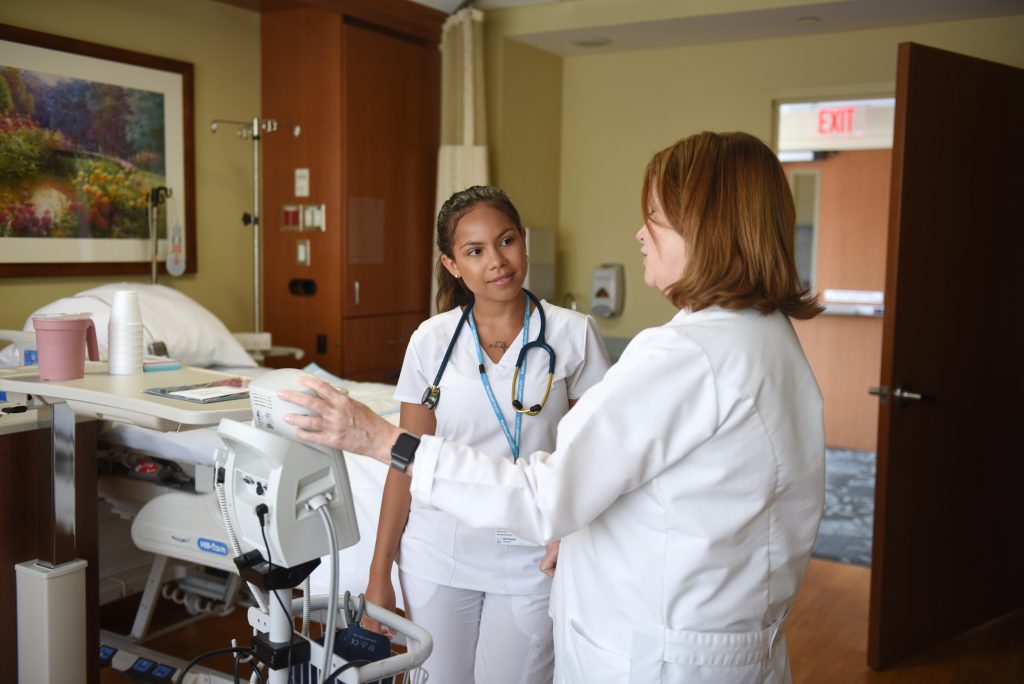Types of Nursing Degrees
Are you thinking about a career as a nurse? If so, you might be surprised that you have a few different options to consider. Choosing the right type of nursing degree is a crucial decision that can shape your entire career in healthcare. Whether you’re considering becoming a registered nurse (RN), a licensed practical nurse (LPN), or pursuing advanced practice nursing, such as nurse practitioner (NP) or nurse anesthetist (CRNA), careful consideration of various factors is essential.
Did you know there is an international nursing shortage around the world? An additional 6 million jobs (or more) are expected to be created before 2030 as well, so it’s a growing profession with a lot of opportunities.
Becoming a nurse can be a challenging, yet rewarding, career choice. Even so, there are plenty of men and women around the world who are passionate about this type of work.
Are you thinking about a career as a nurse? If so, you might be surprised that you have a few different options to consider. Choosing the right type of nursing degree is a crucial decision that can shape your entire career in healthcare. Whether you’re considering becoming a registered nurse (RN), a licensed practical nurse (LPN), or pursuing advanced practice nursing, such as nurse practitioner (NP) or nurse anesthetist (CRNA), careful consideration of various factors is essential.
Keep reading to learn the difference between nursing degrees you can pursue and how you can climb up the ladder of success in the field.
Nursing Assistant (CNA)
Also called a nursing aid or a CNA, nursing assistants aren’t technically nurses. They work with nurses as the point of contact between medical staff and patients. Many nurses will start out their careers as nursing assistants before going on to other levels of nursing.
Some of the things that a nursing assistant is trained to do include:
- Helping patients eat
- Bathing patients
- Assisting patients in the bathroom
- Measuring vital signs
- Transferring patients between beds
Some CNAs also dispense medication to patients, but it depends on the state they are located in.
Further, CNAs often are the principal caregivers in a residential care or nursing home. They have a lot of direct contact with patients compared to other members on staff at these facilities.
Becoming a CNA
Prerequisites before pursuing this degree include an education program approved by the state you live in (and plan to work in). Typically, this type of nursing degree will take between 3-8 weeks for you to complete. After the program, you’ll also have to take an exam to earn the CNA title and become state-certified. In order to practice legally within your state, you must become state-certified before you begin providing care.
Licensed Practical Nurse (LPN)
A licensed practical nurse, also sometimes called a licensed vocational nurse, is responsible for more duties than a nursing assistant. They will monitor the patient’s health and are able to administer some care.
A few of the specific tasks they may have include:
- Inserting catheters
- Starting IV drips
- Replacing bandages
- Taking blood pressure levels
This role also has a lot of direct contact with patients, and they may talk with the patient’s family members to provide general education on how to care for their loved one. Some states allow LPNs to administer medication, but not all.
Becoming an LPN
To become an LPN, you’ll first need to complete a practical nursing diploma program. These programs are available at community colleges, career colleges, or vocational/technical schools. Typically, you’d be able to finish this type of nursing degree within 12 months.
After you graduate, you’ll be asked to take the National Council Licensure Exam (NCLEX-PN) for state licensure and qualifications.
If you want to go above and beyond at this nursing level, you can also get certifications in specific subjects, like childbirth or IV therapy. This will make you a little more desirable in the job market.
Registered Nurse (RN)
When most people think of the word “nurse,” they are thinking of a registered nurse. They have a lot of different roles in the medical field, and they are responsible for a variety of aspects of patient care overall.
Some main responsibilities include:
- Monitoring medical equipment
- Monitoring symptoms in a patient
- Recording medical history
- Administering medications
- Performing diagnostic tests
- Working with doctors regarding patient care
- Establishing or assisting with a care plan
In some locations, the RNs in a facility are also responsible for managing CNAs, LPNs, LVNs, or other members of the healthcare staff. The specific job duties are going to vary depending on where the RN is working and what sort of patients are in that facility.
RNs are able to work in specific patient populations more readily than lower nursing levels, so they might choose to work in pediatrics, geriatrics, psychiatric wards, or other specialized areas.
Further, if an RN decides they don’t want to work in direct patient care, they can also work in policy or at health clinics in public schools (among other fields).
Becoming an RN
Those interested in becoming registered nurses will first need to complete either an Associate’s Degree in Nursing (ADN) or a Bachelor’s of Science in Nursing (BSN). ADN programs can take between 1.5 to 2 years to complete, while BSN programs will take about 3-4 years (unless you already have prior learning credits that count toward the degree).
How do you choose which program is right for you? While some may prefer the faster timeline that comes with an associate’s degree, some employers will prefer RNs who have a bachelor’s degree. If you choose to pursue an associate’s degree, you are able to return to school for an RN-to-BSN program if you change your mind.Whichever degree you complete, you’ll need to pass the National Council Licensure Exam (NCLEX) before you start working. Additionally, your state may have specific requirements to complete at this level.
Advanced Practice Registered Nurse (APRN)
A registered nurse who earns a Master of Science in Nursing (MSN) is able to become an advanced practice registered nurse. These nurses have even more options in regards to their career as well as the ability to work independently of doctors if they choose.
An APRN is able to do the same things as an RN, but they are also capable of ordering tests, referring patients, or diagnosing ailments.
Nurses at this level can become nurse educators to train future nurses. They can also become directors of nursing to obtain a higher leadership position.
Becoming an APRN
You must be an RN in order to become an APRN. Once you’re ready to pursue this advanced licensure, you will have to verify your RN licensure and ADN/BSN degree to your MSN program. Some master’s programs will require a BSN over an ADN.
Once you’ve been accepted to an MSN program, you will need to complete all of their requirements to graduate, including any additional clinical experience or certifications that are required for certain fields, depending on what your plans are after graduation. You’ll need to complete a certification exam that covers the knowledge needed for your specific field. Check out the National Council of State Boards for Nursing to learn the specifics of that exam.
Are You Interested in Pursuing Nursing Degrees?
With a better understanding of the different nursing degrees out there, you can now begin to determine which route is best for you. Whether you want to become a CNA to get started or jump right into working toward being an RN, you have options. Once you’re ready to start searching for the perfect school, we have you covered. Check out information on our website about the best nursing schools available today.




